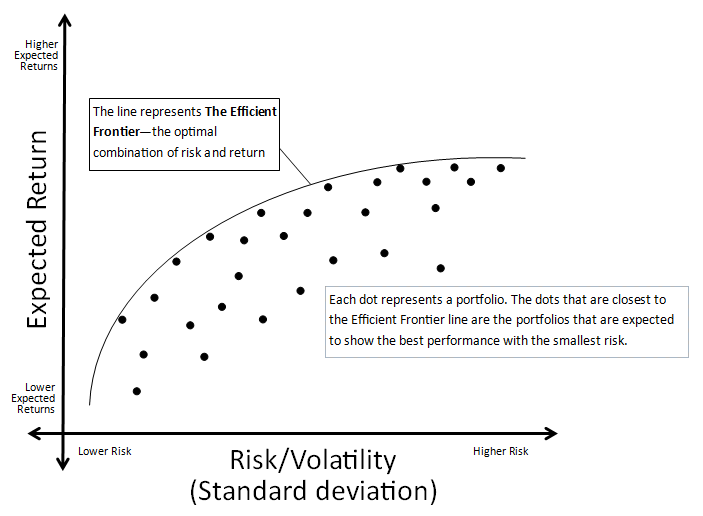Efficient frontier & the opportunity cost of work
The opportunity cost of hard work
Hard work is generally viewed as a virtue, and something we should do more of. I’m all for doing some amount of it, but if we’re being honest, too much hard work kind of sucks. It’s tiring, it’s effortful, and by definition, it’s hard.
The reality of the world today is that if you’re fortunate to have graduated with a STEM degree from a good college, and especially if you have in-demand skills such as software or data skills, it’s possible to land a job (in the tech industry, for example) with a good effort to reward ratio. This opens up time for things like social life, travel, leisure, hobbies, and personal growth – all wonderful things!
For various reasons, I’ve prioritized career for the first few years out of college, at the expense of leisure, social life, and other areas. Sometimes I wonder if it’s worth it. There are diminishing marginal returns to work, and there’s a high opportunity cost to working hard.
So how do you know if the tradeoff is worth it? It varies by person and changes over time. I don’t think there’s a right answer, but there is a right framework for how to think about it: the efficient frontier.
Efficient frontier applied to life
In finance, modern portfolio theory provides a framework for how to put together an optimal portfolio.

There are countless portfolios you can build, but only some will maximize return for a given level of risk. These are on the efficient frontier. All other portfolios are subpar because given the same amount of risk, you can increase your return; alternatively, given the same return, you can reduce your risk.
If we swap out risk and reward for, for lack of a better term, effort and enjoyment, then we can apply the concept of the efficient frontier to life.1
There are many ways to live your life, each with a different balance of effort versus enjoyment. The balance you choose is a personal decision, and there’s no right answer here, but regardless of the balance you choose, you want to be on the efficient frontier. This has a few implications:
- If you’re putting less effort into your career, make sure you’re actually having a good time during your free hours! If not, then you’re not living on the efficient frontier. Spending free time well is surprisingly hard, and requires care and intention. It’s easy to squander free time sitting at my desk and scrolling on the internet.
- If you’re busting your ass and working hard, make sure it’s on something you care about and that’s worth doing. The opportunity cost is too high otherwise. You’re giving up your time, health, and life experiences. Make sure it’s worthwhile, whether it’s your enjoyment of the work, the salary you’re paid, or the impact you create through your work.
Either way, set a high bar. Even when you do, your bar won’t be high enough because we have limited experiences. We can only comprehend a subset of the world, and it’s impossible to fathom the full set of lives we could lead. Given this, the bar you set for yourself won’t be nearly as high as you think.
Make the life you choose justify itself
There are an infinite number of ways you can live your life. For example, where you live, what job you work, who you spend your time with, and what you spend your time on.
Given this, it’s worth reflecting every once in a while: out of the all the ways I can live my life, can the way I’m living right now justify itself?
If so, that’s awesome. Carry on. If not, move closer to the efficient frontier. Or if you’re not happy with the balance of effort and enjoyment in your life, then shift to a different location on the frontier.
There’s a Chinese saying “钱花在刀刃上”. In English, this loosely translates to “make the most of the money you spend, and be as precise as the sharp end of a knife”. It’s the same idea as the efficient frontier. If you chose an easy career, make sure you’re having a damn good time; if you chose an effortful career, make sure it’s worth your while. Avoid anything in between.
Notes
-
Work vs play isn’t quite the right analogy because work can feel like play if you choose well. ↩